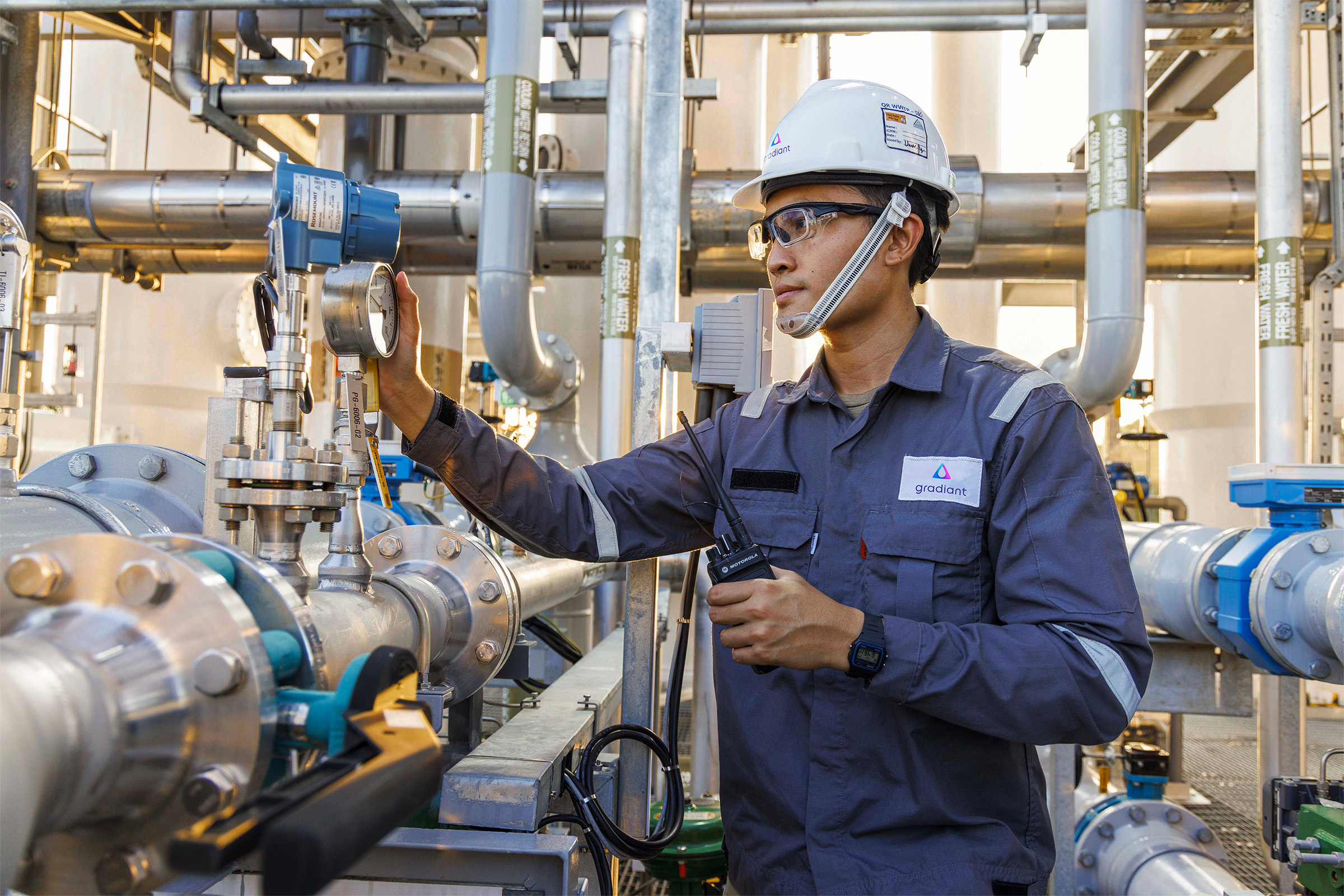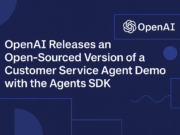
Relating to water use, most of us consider the water we drink. However industrial makes use of for issues like manufacturing account for billions of gallons of water every day. For example, making a single iPhone, by one estimate, requires greater than 3,000 gallons.
Gradiant is working to cut back the world’s industrial water footprint. Based by a staff from MIT, Gradiant gives water recycling, therapy, and purification options to a number of the largest firms on Earth, together with Coca Cola, Tesla, and the Taiwan Semiconductor Manufacturing Firm. By serving as an end-to-end water firm, Gradiant says it helps firms reuse 2 billion gallons of water every day and saves one other 2 billion gallons of recent water from being withdrawn.
The corporate’s mission is to protect water for generations to return within the face of rising world demand.
“We work on each ends of the water spectrum,” Gradiant co-founder and CEO Anurag Bajpayee SM ’08, PhD ’12 says. “We work with ultracontaminated water, and we will additionally present ultrapure water to be used in areas like chip fabrication. Our specialty is within the excessive water challenges that may’t be solved with conventional applied sciences.”
For every buyer, Gradiant builds tailor-made water therapy options that mix chemical therapies with membrane filtration and organic course of applied sciences, leveraging a portfolio of patents to drastically minimize water utilization and waste.
“Earlier than Gradiant, 40 million liters of water can be used within the chip-making course of. It might all be contaminated and handled, and perhaps 30 % can be reused,” explains Gradiant co-founder and COO Prakash Govindan PhD ’12. “We’ve got the expertise to recycle, in some circumstances, 99 % of the water. Now, as an alternative of consuming 40 million liters, chipmakers solely have to devour 400,000 liters, which is a big shift within the water footprint of that trade. And this isn’t simply with semiconductors. We’ve completed this in meals and beverage, we’ve completed this in renewable vitality, we’ve completed this in pharmaceutical drug manufacturing, and several other different areas.”
Studying the worth of water
Govindan grew up in part of India that skilled a years-long drought starting when he was 10. With out faucet water, considered one of Govindan’s chores was to haul water up the steps of his condominium advanced every time a truck delivered it.
“Nonetheless a lot water my brother and I may carry was how a lot we had for the week,” Govindan recollects. “I realized the worth of water the arduous approach.”
Govindan attended the Indian Institute of Know-how as an undergraduate, and when he got here to MIT for his PhD, he sought out the teams engaged on water challenges. He started engaged on a water therapy methodology referred to as service fuel extraction for his PhD below Gradiant co-founder and MIT Professor John Lienhard.
Bajpayee additionally labored on water therapy strategies at MIT, and after temporary stints as postdocs at MIT, he and Govindan licensed their work and based Gradiant.
Provider fuel extraction turned Gradiant’s first proprietary expertise when the corporate launched in 2013. The founders started by treating wastewater created by oil and fuel wells, touchdown their first associate in a Texas firm. However Gradiant progressively expanded to fixing water challenges in energy era, mining, textiles, and refineries. Then the founders observed alternatives in industries like electronics, semiconductors, meals and beverage, and prescribed drugs. At the moment, oil and fuel wastewater therapy makes up a small share of Gradiant’s work.
As the corporate expanded, it added applied sciences to its portfolio, patenting new water therapy strategies round reverse osmosis, selective contaminant extraction, and free radical oxidation. Gradiant has additionally created a digital system that makes use of AI to measure, predict, and management water therapy services.
“The benefit Gradiant has over each different water firm is that R&D is in our DNA,” Govindan says, noting Gradiant has a world-class analysis lab at its headquarters in Boston. “At MIT, we realized learn how to do cutting-edge expertise growth, and we by no means let go of that.”
The founders evaluate their suite of applied sciences to LEGO bricks they’ll combine and match relying on a buyer’s water wants. Gradiant has constructed greater than 2,500 of those end-to-end methods for purchasers world wide.
“Our prospects aren’t water firms; they’re industrial purchasers like semiconductor producers, drug firms, and meals and beverage firms,” Bajpayee says. “They aren’t about to start out working a water therapy plant. They have a look at us as their water associate who can handle the entire water drawback.”
Persevering with innovation
The founders say Gradiant has been roughly doubling its income every year during the last 5 years, and it’s persevering with so as to add applied sciences to its platform. For example, Gradiant lately developed a essential minerals restoration answer to extract supplies like lithium and nickel from prospects’ wastewater, which may broaden entry to essential supplies important to the manufacturing of batteries and different merchandise.
“If we will extract lithium from brine water in an environmentally and economically possible approach, the U.S. can meet all of its lithium wants from throughout the U.S.,” Bajpayee says. “What’s stopping large-scale extraction of lithium from brine is expertise, and we consider what we now have now deployed will open the floodgates for direct lithium extraction and fully revolutionized the trade.”
The corporate has additionally validated a way for eliminating PFAS — so-called poisonous “perpetually chemical substances” — in a pilot undertaking with a number one U.S. semiconductor producer. Within the close to future, it hopes to deliver that answer to municipal water therapy crops to guard cities.
On the coronary heart of Gradiant’s innovation is the founders’ perception that industrial exercise doesn’t need to deplete one of many world’s most significant assets.
“Ever because the industrial revolution, we’ve been taking from nature,” Bajpayee says. “By treating and recycling water, by lowering water consumption and making trade extremely water environment friendly, we now have this distinctive alternative to show the clock again and provides nature water again. If that’s your driver, you may’t select to not innovate.”




















![Diablo 4 Mod Apk Newest Model [Unlimited Excitement]](https://digibytetoday.com/wp-content/uploads/2025/06/1750344127_1-final-180x135.jpg)















